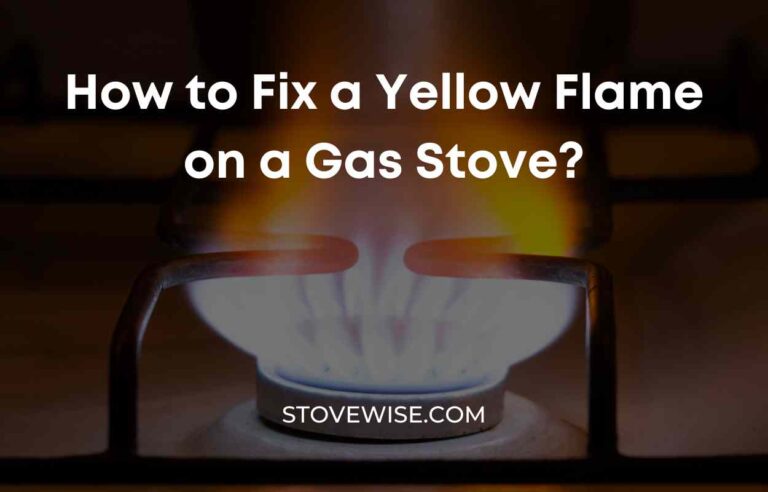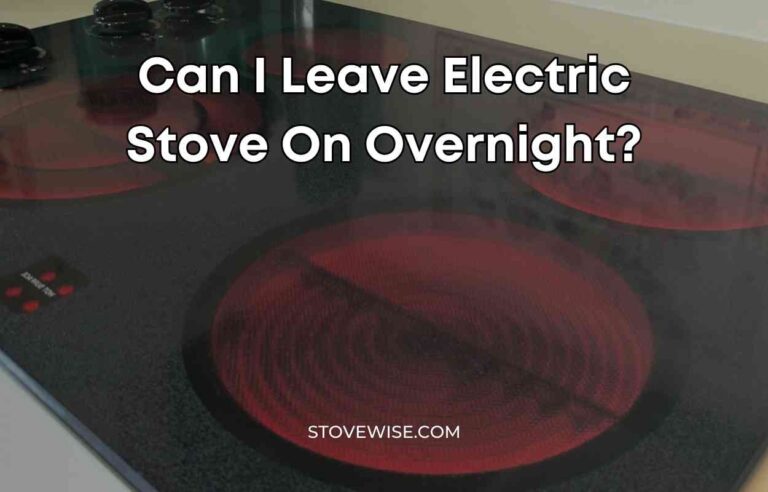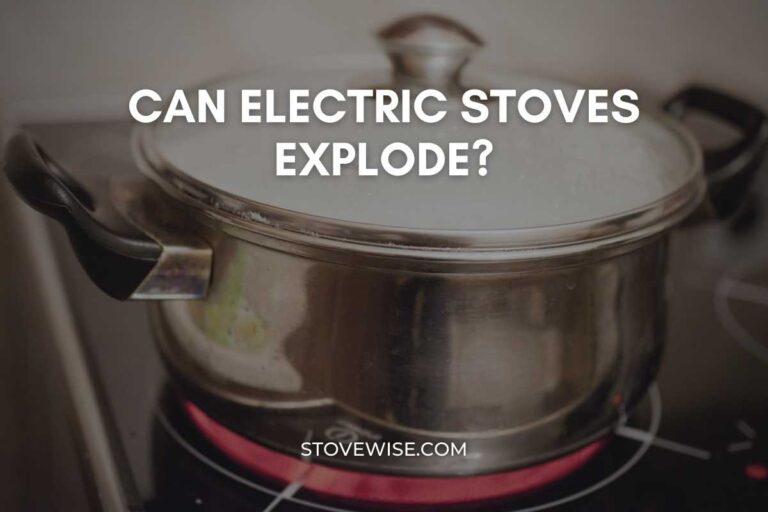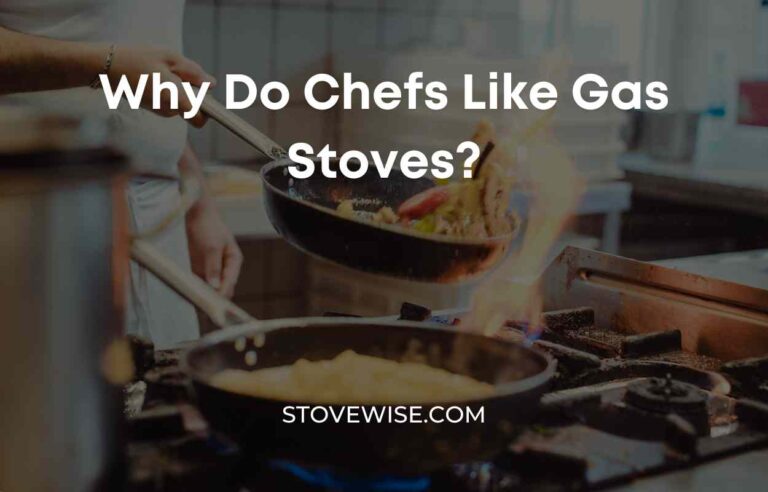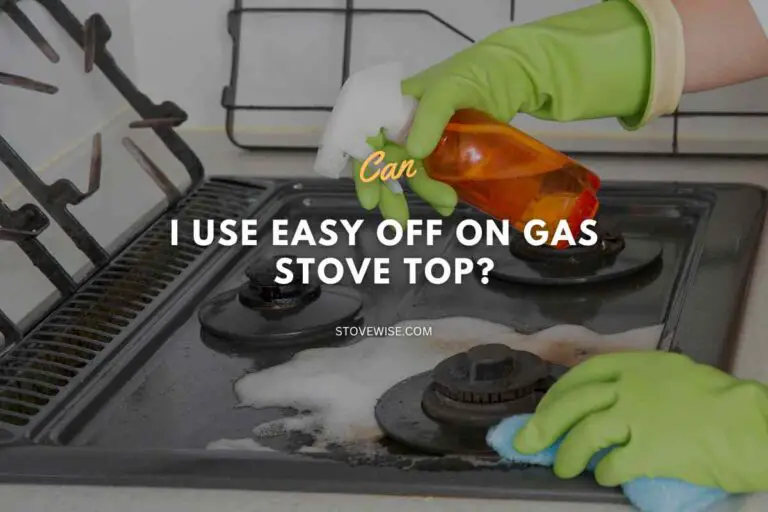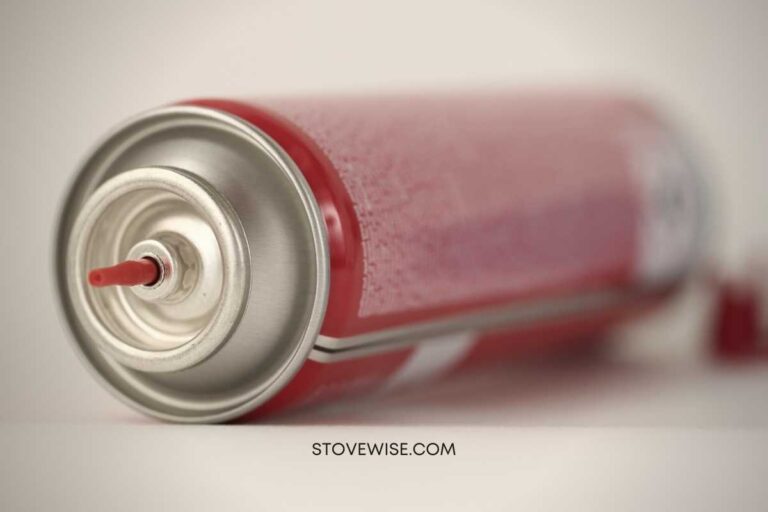Can You Use Oven Cleaner on Stove Top Grates?
If you’re like most people, you probably don’t clean your stove top grates as often as you should. Over time, grease and food particles can build up and make it difficult to cook on your stove. So, can you use oven cleaner on stove top grates?
Oven cleaners, such as Easy Off, contain strong chemicals and may emit harsh fumes. Cleaning experts advise using alternative methods, like dish soap and powder cleansers, non-scratch scrubbers, or ammonia-based solutions. While it is possible to use oven cleaner on stove top grates, caution should be exercised due to potential health and environmental concerns.
Regular maintenance and proper cleaning techniques can help prevent the buildup of stubborn spills and maintain the cleanliness of stove top grates.
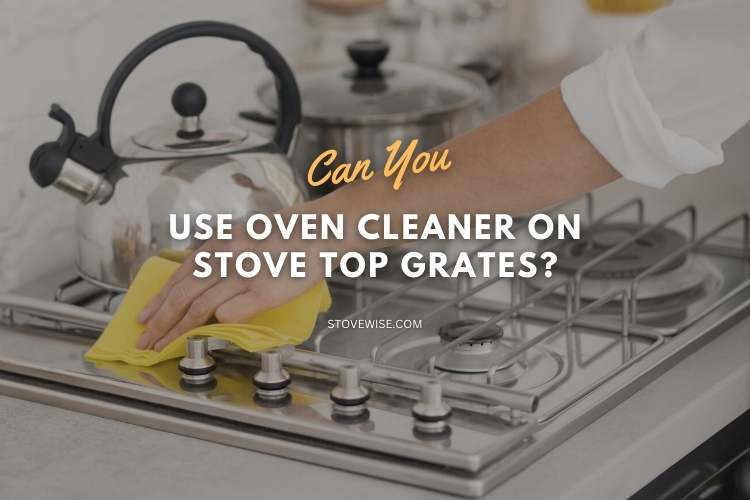
Contents
What Are Stove Top Grates?
Before we get into how to clean stove top grates, let’s first define what they are. Stove-top grates are the metal racks that sit on top of your stove burners. They’re usually made of cast iron or steel and can be round or square, depending on the type of stove you have.
Stove top grates, also known as burner grates or burner grills, are removable components found on gas or electric stovetops. They are typically made of cast iron, stainless steel, or other heat-resistant materials.
These grates provide a stable surface for pots and pans to sit on, allowing heat from the burners to evenly distribute and transfer to the cookware. Stove top grates come in various sizes and designs, featuring a grid-like pattern or individual bars that support the cookware.
They play a crucial role in protecting the stovetop surface and facilitating efficient cooking by elevating the cookware above the flames or electric coils.
Can You Use Oven Cleaner on Stove Top Grates?
Using oven cleaners on stove top grates is a topic that generates mixed opinions among cleaning experts. While it is technically possible to use oven cleaner on stove top grates, caution must be exercised due to several factors.
Oven cleaners, such as Easy Off, are specifically formulated to tackle tough grease, grime, and baked-on food inside ovens.
They contain potent chemicals, such as sodium hydroxide or lye, which can be effective at breaking down stubborn residues. However, these chemicals can also be harsh and may emit strong fumes, making proper ventilation essential during the cleaning process.
One concern with using oven cleaners on stove-top grates is the potential for the chemicals to interact with the grate material. If the grates are made of cast iron, which is commonly used, the chemicals in the oven cleaner can strip away the seasoning or protective coating on the cast iron, leading to rusting or corrosion over time.
Additionally, oven cleaners may not be suitable for grates made of other materials, such as stainless steel or enamel, as they can cause discoloration or damage.
Furthermore, the residues left by oven cleaners on stove-top grates must be thoroughly rinsed off to ensure they do not come into contact with food during future use. Failure to remove all traces of the cleaner can result in chemical contamination and potential health risks.
How to Clean Stove Top Grates with Oven Cleaner
If you decide to use oven cleaner to clean your stovetop grates, follow these steps:
- Remove the grates from your stove and place them on a flat surface.
- Spray the grates with oven cleaner, making sure to cover them evenly.
- Let the oven cleaner sit on the grates for at least 30 minutes. This will give the cleaner time to break down the grease and grime.
- Use a scrub brush or sponge to scrub the grates clean. You may need to use some elbow grease to get rid of stubborn stains.
- Rinse the grates thoroughly with water to remove any leftover cleaner.
- Dry the grates with a clean towel and place them back on your stove.
Tips for Using Oven Cleaner on Stove Top Grates
Here are some tips to keep in mind when using oven cleaner on your stovetop grates:
- Make sure to wear gloves and protective eyewear when using oven cleaners.
- Only use oven cleaner on grates that are made of cast iron or steel. Do not use it on grates that are made of aluminum or porcelain, as the chemicals in the cleaner can damage these materials.
- Make sure to use oven cleaner in a well-ventilated area. The fumes from the cleaner can be harmful if inhaled.
- If you have a gas stove, make sure to turn off the gas supply before removing the grates.
- Always read the instructions on the oven cleaner before using it.
- If you have any doubts about using oven cleaner on your stove top grates, consult the manufacturer’s instructions or contact a professional.
Alternatives to Oven Cleaner
If you’re hesitant to use oven cleaner on your stove top grates, there are other cleaning methods you can try. Here are some alternatives:
- Soak the grates in hot, soapy water for a few hours. This will help loosen any grease and grime, making it easier to scrub them clean.
- Use a mixture of baking soda and water to create a paste. Apply the paste to the grates and let it sit for at least 30 minutes. Then, scrub the grates clean with a scrub brush or sponge.
- Use a commercial degreaser specifically designed for stove top grates. These products are formulated to cut through grease and grime without damaging the grates.
Final Thoughts
Cleaning your stovetop grates may not be the most fun chore, but it’s an important one. A clean stove will not only look better, but it will also cook your food more evenly. If you decide to use oven cleaner on your stovetop grates, make sure to follow the instructions carefully and take the necessary precautions.
If you’re not comfortable using oven cleaners, there are other cleaning methods you can try. With a little elbow grease, you can have clean stovetop grates in no time!

